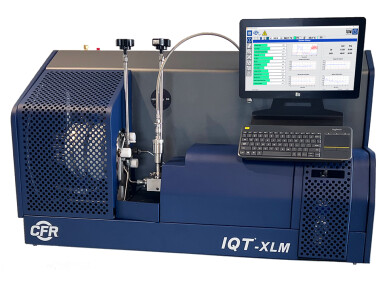Analytical Instrumentation
A Guide to Polymeric Materials
May 14 2015
Though the term “polymeric materials” may sound far too technical and obscure to most untrained ears who are not familiar with such scientific jargon, the truth is that we all encounter and interact with polymers (as they are more commonly known) every day of our lives.
Put simply, polymers are nothing more than substances comprised of a series of structurally repeating units. Because the links between the units are uniform and repetitive, polymeric molecular structure often takes the form of a chain. Polymers can be both naturally occurring and man-made, and play a big part in our daily existence.
Natural Polymers
There are countless examples of natural polymers which have been around since the dawn of creation. Indeed, if we wish to see examples, we need look no further than our own body. The helical structure of DNA, which many of us are familiar with an abstract way, is a great way to envisage an example of polymers, since it is a complex series of recurring units which combine together to form something greater than the whole of the parts.
Other polymers in our bodies include proteins, while cellulose, the main component of all plant life, is another polymer. Its purest natural form is cotton, while it also comprises the bark of trees and other structural parts of plants, making it the most abundant organic compound on our planet.
More examples of natural polymers include starch, natural rubber, wool, silk and amber.
Synthetic Polymers
On the other hand, man has also been studying and creating artificial polymers for almost 200 years. This is achieved by using small molecules, called monomers, to combine together to create a larger series of molecules, or a macromolecule. Synthetic polymers are often commonly referred to as “plastics”.
More often than not, the substance used as the backbone for the formation of plastics is carbon, although this is not always the case. Silicon and a variety of metals can also be used in their manufacture.
Some everyday examples of synthetic polymers include polyvinyl chloride (PVC), nylon, Teflon, neoprene, polystyrene and synthetic rubber.
Applications of Polymers
Polymers are used in all sorts of fields and industries around the globe – both natural and synthetic. Here are just a handful of their potential uses:
- Industry. Car, bus, train and aircraft windshields are often constructed from polymers, as are other automotive parts, tanks, piping, insulation, packing substances, adhesives and furniture components (wood substitutes).
- Medicine. Teflon, Dacron and polyurethane are often used in the manufacture of replacement blood vessels and heart valves, among other items.
- Agriculture. Polymers can be used to treat soil and improve aeration, as well as encourage the health and growth of plant life.
- Sports and Recreation. Sporting equipment such as tennis racquets, golf clubs, golf balls, goal posts, bicycle frames, protective helmets and much more are often comprised of various polymeric substances.
Polymeric Safety
Since scientists are developing new types of polymeric substances all of the time, they must be thoroughly tested before entering the marketplace to determine how they will react in real-life situations. The article Fully Automated Instrument for Solution Viscosity in Polymeric Materials talks in detail about how one particular aspect of their performance can be measured using an innovative new device.
Digital Edition
PIN 25.5 Oct/Nov 2024
November 2024
Analytical Instrumentation - Picturing Viscosity – How Can a Viscometer or a Rheometer Benefit You? - Sustainable Grease Formulations: Evaluating Key Performance Parameters and Testing Method...
View all digital editions
Events
Dec 03 2024 Dusseldorf, Germany
Dec 08 2024 Anaheim, CA, USA
Turkey & Black Sea Oil and Gas
Dec 11 2024 Istanbul, Turkey
Dec 19 2024 Aurangabad, India
Jan 20 2025 San Diego, CA, USA



















